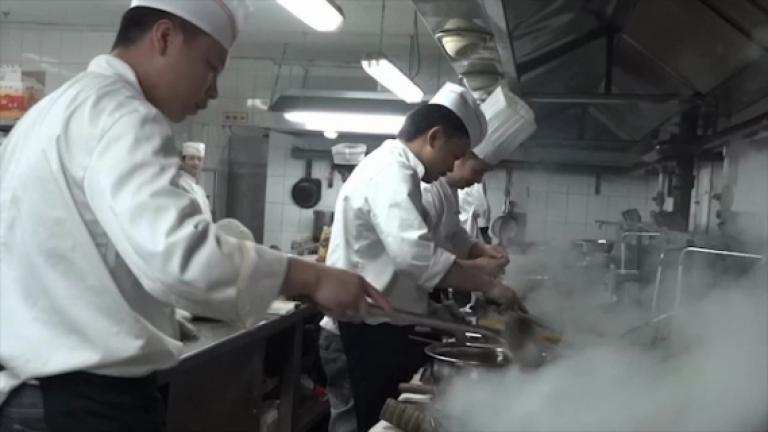Powerland Beijing: From fries to fuel
BEIJING — When Lu Xirou goes to a Chinese restaurant, he’s not thinking about food. The Beijing biofuel executive thinks of gas stations, and climate change.
“China produces 3 million tons of waste cooking oil a year,” Xirou said over a recent meal. “This can be recycled into 3.5 million dons of bio-diesel. This can reduce Carbon dioxide emissions by 7 million tons. That’s a huge number.”
China has prioritized the development of some alternative energy sources, like solar panels. But it’s behind other industrialized countries when it comes to biofuel. Lu, general manager of Beijing’s largest biofuel refinery, aims to change that. He dreams of a day when a generous portion of restaurants’ used oil will end up in your gas tank.
“Petroleum supplies are dwindling. So we need a substitute raw material,” he said. “We figured since human need food, why not recycle used cooking oil into fuel.”
Lu Xiruo has patents for refining processes he says are faster than those used widely in industrialized nations. It’s a great start for his company, Zhongde Lihua Petrochemical Co, but it’s not enough to make the biofuel business profitable.
“The biggest bottleneck for developing biofuel is we can’t obtain enough used cooking oil,” Lu said. “That’s because a lot of it goes to illegal collectors.”
Beijing has a thriving illegal cooking oil recycling industry. Collectors process the oil and sell it back to restaurants for much higher profits than they can earn selling to Lu’s refinery. The oil poses a health risk, and is believed to be carcinogenic, but so far the government has failed to put the illegal collectors out of business.
That’s not Lu’s only headache.
"We have a hard time finding distributers. Big companies like Sinopec don’t sell our fuel,” he said. “It’s not because we have a quality problem. It’s because they don’t feel they have an obligation to sell our product. So we target small, privately-run gas stations.”
Still Lu believes rising oil prices and increased food safety awareness in China are on his side. He says it’s only a matter of time before fry oil becomes a fuel of choice for Beijing residents.
We want to hear your feedback so we can keep improving our website, theworld.org. Please fill out this quick survey and let us know your thoughts (your answers will be anonymous). Thanks for your time!
